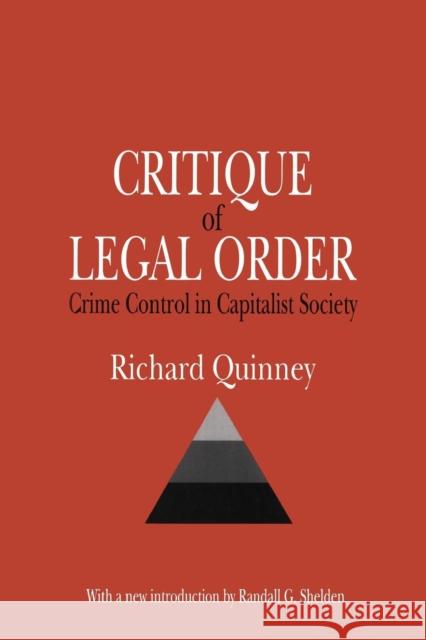Critique of Legal Order: Crime Control in Capitalist Society » książka
Critique of Legal Order: Crime Control in Capitalist Society
ISBN-13: 9780765807977 / Angielski / Miękka / 2001 / 234 str.
Originally published thirty years ago, Critique of the Legal Order remains highly relevant for the twenty-first century. Here Richard Quinney provides a critical look at the legal order in capitalist society. Using a traditional Marxist perspective, he argues that the legal order is not intended to reduce crime and suffering, but to maintain class differences and a social order that mainly benefits the ruling class. Quinney challenges modern criminologists to examine their own positions. As -ancillary agents of power, - criminologists provide information that governing elites use to manipulate and control those who threaten the system. Quinney's original and thorough analysis of -crime control bureaucracies- and the class basis of such bureaucracies anticipates subsequent research and theorizing about the -crime control industry, - a system that aims at social control of marginalized populations, rather than elimination of the social conditions that give rise to crime. He forcefully argues that technology applied to a -war against crime, - together with academic scholarship, is used to help maintain social order to benefit a ruling class. Quinney also suggests alternatives. Anticipating the work of Noam Chomsky, he suggests we must first overcome a powerful media that provides a -general framework- that serves as the -boundary of expression.- Chomsky calls this the manufacture of consent by providing necessary illusions. Quinney calls for a critical philosophy that enables us to transcend the current order and seek an egalitarian socialist order based upon true democratic principles. This core study for criminologists should interest those with a critical perspective on contemporary society.











